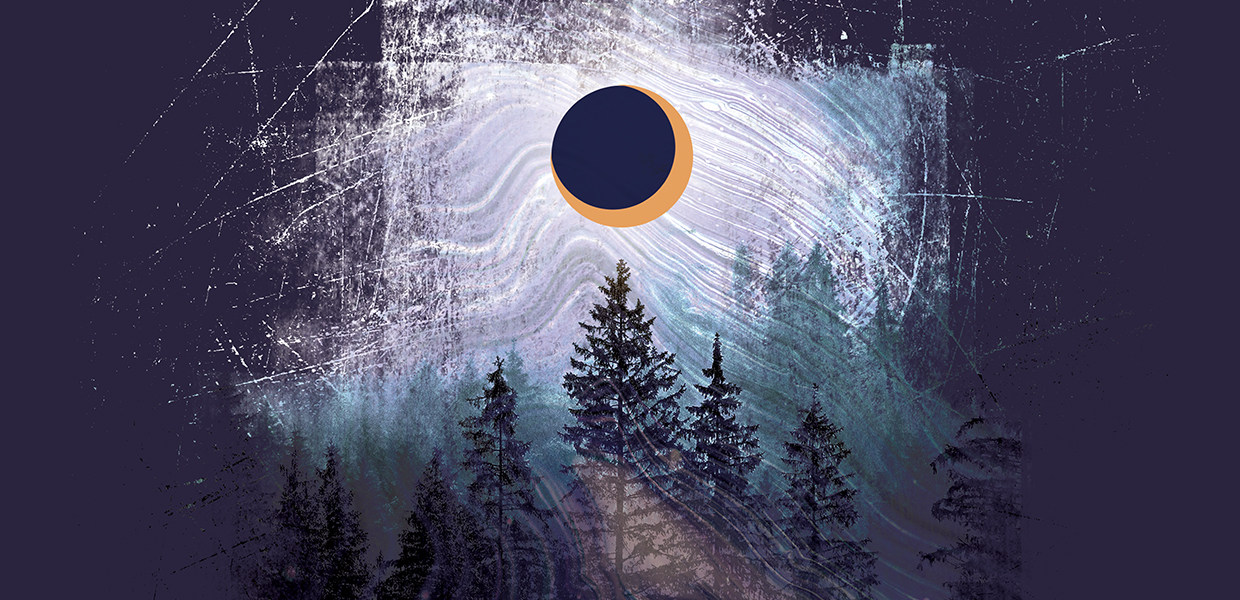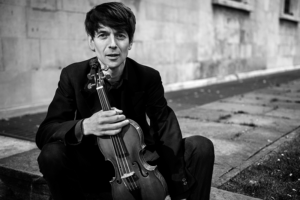
Concerts by Candlelight
An atmospheric and life-affirming evening of music set within a shimmering array of candles. From the gorgeous musical balm of Henry Purcell, to the warmth and generosity of Brahms, via touching music by Biber, and, bringing things up to date, the thick, treacly sonic textures of Julia Wolfe’s Four Marys, this is a programme that spans the centuries, offering something for every taste.
Scottish Ensemble is joined for these performances by the incisive and dynamic presence of violinist and director Matthew Truscott, leading proceedings in this perfect pre-Christmas musical feast.
This programme includes musicians from our Young Artists programme, promising strings students chosen to accompany us on tour as part of our training programme with the Royal Conservatoire of Scotland.
- Henry Purcell
In Nomine in 7 parts, Dorian - Julia Wolfe
Four Marys for string orchestra - Heinrich Biber
Balletti Lamentabili a 4 - Johannes Brahms
Adagio from String Quintet No.2 in G major - Franz Schubert
Der Leiermann (The Hurdy-Gurdy Man) from Winterreise (arranged for string orchestra by Dobrinka Tabakova) - Henry Purcell
Symphony and Here the deities from Welcome to all the pleasures Fantasy on One Note - Ludwig van Beethoven
Molto Adagio (Holy song of thanksgiving) from String Quartet No.15 (arranged for string orchestra by Iain Farrington) - Anon
In Nomine in 6 parts
Looking for our upcoming concerts?
You are currently on an archive page for our 2021 Concerts by Candlelight tour, click bellow to view our 2023 tour page with up to date ticket details and repertoire.
- Thu 2 December 7:30 pmAberdeen St. Machar’s Cathedral
- Fri 3 December 7:30 pmInverness Inverness Cathedral
- Sat 4 December 7:30 pmPerth St. John’s Kirk
- Mon 6 December 7:30 pmDundee Caird Hall
- Tue 7 December 7:30 pmEdinburgh Greyfriars Kirk
- Wed 8 December 7:30 pmGlasgow Wellington Church
Preview the music for our candlelit tour
An Introduction to the Music
by Matthew Truscott
This string programme weaves its way around its central work, Beethoven’s taut and beautiful Heiliger Dankgesang, his song of thanks for recovery from illness. One of the most celebrated, profound and joyful pieces of string music from any period, it has within it intimations of past, present and future.
String, even as far back as the Greek Moirai, the three Fates who spun, measured out and then at the point of death, cut the threads of individual destinies, has been a metaphor for journeying, for attachment and for life itself.
Strings of different lengths form the drones which resonate throughout Julia Wolfe’s Four Mary’s, Schubert’s eerily desperate Leiermann, and Purcell’s audacious and awe inspiring Fantasy on One Note, a perfect lockdown piece, showing how much variety it’s possible to find while staying at home.
Threads of chorales, or prayer, which breathe with wonderful gentle optimism and gratitude in Beethoven’s Lydian tonality, emanate from the cantus firmus in the two In Nomines which bookend the programme. First Purcell’s in the Dorian mode, a darker feel, and at the end the anonymous In Nomine a 6, altogether brighter, but with similarly magical transformative counterpoint. Biber’s Balletti Lamentabili of 1670 may have been written in response to a near scrape with death in October 1669, the delicate dances forming a more physical 17th century version of Beethoven’s metaphysical masterpiece. And the Brahms quintet movement carries the glow of wisdom and generosity of a man who at the time felt as though he was writing his last music, but who was subsequently inspired to further greatness. The restorative power of music itself is evoked in Purcell’s Ode to St Cecelia. In Here the Deities Approve the Gods of music and love look down appreciatively as the gifts they have bestowed are used to such nourishing and sensual effect, nowhere more so than in the gorgeous string ritornello which sweeps up the voice (here violin) at the end of the aria.
As if to reward our sense of Beethoven’s Lydian hymn having an archetypal resonance beyond itself, there follows this historical curiosity:
Around seventy years after Beethoven’s death, an ancient fragment of rock was discovered in Greece, carved into which is the earliest surviving example of attributable notated music anywhere in the western world. It was written in 128 BC by an Athenian named Limenios and is dedicated to Apollo, god of music and of healing.
The music: a hymn of thanks in the Lydian mode.
Its text reads
Come ye to this twin-peaked slope of Parnassos with distant views, [where dancers are welcome], and [lead me in my songs], Pierian Goddesses who dwell on the snow-swept crags of Helikon. Sing in honour of Pythian Phoebus, golden-haired, skilled archer and musician, whom blessed Leto bore beside the celebrated marsh, grasping with her hands a sturdy branch of the grey-green olive tree in her time of travail.
Performers
- Director/Violin
Matthew Truscott - Violin
Liza Johnson, Kate Suthers, Lena Zeliszewska, Tristan Gurney, Laura Ghiro, Alastair Savage, Rachel Culpan* - Viola
Andrew Berridge, Carol Ella, Gordon Cervoni* - Cello
Alison Lawrance, Naomi Pavri - Double Bass
Diane Clark - Lute
Kristiina Watt - *SE Young Artist
Resources & Downloads
Concerts by Candlelight - Programme
1.39 MB
